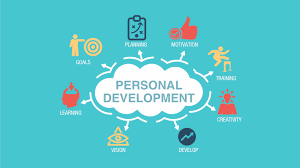Self-Improvement and Personal Growth: Unlocking Your Full Potential
In a world that is constantly evolving, it is essential to invest in self-improvement and personal growth. The journey of self-discovery and continuous development not only enhances our skills and abilities but also enriches our lives in profound ways. Whether it’s achieving career success, cultivating meaningful relationships, or finding inner peace, self-improvement is the key to unlocking our full potential.
One of the fundamental aspects of self-improvement is self-awareness. Understanding our strengths, weaknesses, values, and passions allows us to make conscious choices that align with our authentic selves. By taking the time to reflect on who we are and what we want out of life, we can set clear goals and work towards them with purpose and determination.
Setting goals is an integral part of personal growth. Goals give us direction and motivation while challenging us to step out of our comfort zones. They provide a roadmap for progress and serve as a measuring stick for our achievements. Whether big or small, setting achievable goals helps us stay focused on what truly matters to us.
However, personal growth goes beyond just setting goals; it requires continuous learning and development. Embracing a growth mindset allows us to see challenges as opportunities for growth rather than obstacles. It encourages us to seek new knowledge, acquire new skills, and expand our horizons. Learning can take various forms – reading books, attending workshops or seminars, seeking mentorship, or even engaging in online courses. The more we invest in ourselves intellectually, emotionally, and spiritually, the more we grow.
Another crucial aspect of personal growth is cultivating healthy habits that support our well-being. This includes taking care of our physical health through regular exercise, nourishing our bodies with nutritious food, getting enough sleep, and managing stress effectively. When we prioritize self-care practices like meditation or mindfulness exercises, we create a solid foundation for personal growth.
Additionally, personal growth is greatly influenced by the company we keep. Surrounding ourselves with positive, supportive individuals who inspire and challenge us can accelerate our progress. Building a network of like-minded people who share our values and aspirations provides valuable opportunities for collaboration, learning, and personal development.
Self-improvement is not a linear process; it requires patience, resilience, and self-compassion. It’s important to acknowledge that setbacks and failures are part of the journey. Instead of being discouraged by them, we should view them as valuable lessons that contribute to our growth. Embracing a mindset of self-acceptance and self-forgiveness allows us to bounce back stronger and continue on our path towards personal growth.
Ultimately, self-improvement and personal growth are lifelong endeavors. As we evolve as individuals, our goals may change, and new areas for improvement may emerge. Embracing this ongoing process with enthusiasm and curiosity opens up endless possibilities for personal fulfillment and success.
So, let us embark on this transformative journey of self-improvement and personal growth. Let us commit to becoming the best versions of ourselves by investing in self-awareness, setting meaningful goals, embracing a growth mindset, cultivating healthy habits, nurturing supportive relationships, and practicing self-compassion along the way. Together, we can unlock our full potential and create a life filled with purpose, joy, and fulfillment.
7 Essential FAQs for Self Improvement and Personal Growth
- How can I become more confident?
- What are the best ways to improve my communication skills?
- How can I better manage my time and be more productive?
- What are the most effective strategies for setting and achieving goals?
- How can I develop a positive mindset and maintain motivation?
- How do I create healthy habits that will lead to lasting change?
- What are some tips for overcoming procrastination and getting things done?
How can I become more confident?
Becoming more confident is a journey that requires self-reflection, practice, and a willingness to step out of your comfort zone. Here are some strategies to help you boost your confidence:
- Identify and challenge your limiting beliefs: Start by recognizing any negative or self-defeating beliefs you may have about yourself. These beliefs often hold us back from reaching our full potential. Challenge them by questioning their validity and replacing them with positive affirmations.
- Set achievable goals: Setting small, attainable goals allows you to experience success and build confidence gradually. Celebrate each accomplishment along the way, no matter how small, as it reinforces your belief in your abilities.
- Practice self-care: Taking care of yourself physically, mentally, and emotionally plays a significant role in building confidence. Get enough sleep, eat nutritious food, exercise regularly, and engage in activities that bring you joy and relaxation.
- Embrace failure as a learning opportunity: Fear of failure can hinder confidence growth. Remember that setbacks are part of life’s journey and provide valuable lessons for growth. Instead of dwelling on failures, focus on what you can learn from them and use those lessons to improve.
- Develop new skills: Expanding your knowledge and acquiring new skills can boost confidence by demonstrating competence in various areas. Take up hobbies or enroll in courses that align with your interests or professional development goals.
- Surround yourself with supportive people: Build a network of positive individuals who believe in you and support your aspirations. Their encouragement can provide the motivation and reassurance needed to boost your confidence.
- Practice self-compassion: Treat yourself with kindness and understanding when faced with challenges or setbacks. Acknowledge that everyone makes mistakes or faces difficulties at times – it’s part of being human.
- Take calculated risks: Stepping out of your comfort zone is essential for personal growth and increased confidence. Start by taking small risks that push the boundaries of what feels comfortable. As you build resilience and experience success, gradually challenge yourself with bigger risks.
- Practice confident body language: Your body language can influence how you feel about yourself and how others perceive you. Stand tall, make eye contact, and maintain an open posture. These non-verbal cues can help project confidence to yourself and those around you.
- Celebrate your strengths: Recognize your unique qualities, talents, and accomplishments. Focus on what you excel at and remind yourself of your strengths regularly. Embracing your strengths helps build a strong foundation for confidence.
Remember that building confidence takes time and effort. Be patient with yourself as you navigate this journey of self-improvement. With consistent practice and a positive mindset, you can cultivate the confidence needed to tackle challenges, pursue opportunities, and live a fulfilling life.
What are the best ways to improve my communication skills?
Improving communication skills is a valuable endeavor that can enhance various aspects of your personal and professional life. Here are some effective ways to develop and refine your communication abilities:
- Active Listening: Actively listening to others is a fundamental aspect of effective communication. Pay attention to both verbal and non-verbal cues, maintain eye contact, and show genuine interest in what the speaker is saying. Avoid interrupting and practice reflective listening by paraphrasing or summarizing what you’ve heard.
- Practice Empathy: Empathy allows you to understand and connect with others on a deeper level. Put yourself in their shoes, acknowledge their emotions, and respond with compassion. This fosters trust, strengthens relationships, and promotes open dialogue.
- Improve Non-Verbal Communication: Non-verbal cues such as body language, facial expressions, tone of voice, and gestures play a significant role in communication. Be mindful of your own non-verbal signals to ensure they align with your intended message. Similarly, observe others’ non-verbal cues to gain better insight into their thoughts and feelings.
- Enhance Clarity: Clear communication involves expressing ideas concisely and articulately. Avoid jargon or technical terms when speaking with someone who may not be familiar with them. Structure your thoughts logically, use appropriate examples or visuals if necessary, and ask for feedback to ensure understanding.
- Develop Assertiveness: Being assertive means expressing your thoughts, needs, and boundaries confidently without being passive or aggressive. Practice assertive communication by using “I” statements, expressing yourself honestly yet respectfully, and actively participating in conversations.
- Seek Feedback: Actively seek feedback from trusted individuals who can provide constructive criticism on your communication skills. This could be a mentor, supervisor, or even trusted friends or family members who can offer insights on areas for improvement.
- Learn from Role Models: Observe individuals known for their excellent communication skills, such as public speakers, leaders, or influencers. Analyze their techniques, delivery style, and ability to connect with their audience. Incorporate those learnings into your own communication approach while maintaining authenticity.
- Engage in Public Speaking or Toastmasters: Joining a public speaking group like Toastmasters can provide a supportive environment for practicing and refining your communication skills. Regularly delivering speeches or presentations helps build confidence, clarity, and poise.
- Read Widely: Reading books, articles, and other written materials can expand your vocabulary, improve sentence structure, and enhance overall communication proficiency. Additionally, it exposes you to different writing styles and perspectives that can enrich your own communication style.
- Practice Mindful Communication: Be mindful of the words you choose and the impact they may have on others. Consider the context of the conversation and adapt your communication style accordingly. Mindfulness helps cultivate presence in conversations and promotes effective two-way communication.
Remember that improving communication skills is an ongoing process that requires practice and self-reflection. Embrace opportunities to engage in meaningful conversations, seek feedback regularly, and be open to learning from both successes and challenges along the way. With consistent effort, you can become a more confident and effective communicator in various aspects of your life.
How can I better manage my time and be more productive?
Managing time effectively and increasing productivity are common goals for many individuals seeking to optimize their daily lives. Here are some practical strategies to help you better manage your time and boost productivity:
- Set Clear Goals: Start by defining your short-term and long-term goals. This clarity will guide your priorities and ensure that you’re spending time on tasks that align with your objectives.
- Prioritize Tasks: Identify the most important and urgent tasks each day. Focus on completing these tasks first, as they have the greatest impact on your progress.
- Create a Schedule: Develop a daily or weekly schedule that allocates specific time blocks for different activities. Be realistic about how long each task will take, and include breaks to rest and recharge.
- Eliminate Time Wasters: Identify activities that consume excessive amounts of time without providing significant value. Minimize or eliminate these distractions, such as excessive social media use or unnecessary meetings.
- Practice Time Blocking: Allocate dedicated blocks of time for specific activities or projects. By grouping similar tasks together, you can minimize context switching and improve focus.
- Learn to Delegate: If possible, delegate tasks that can be handled by others, freeing up your time for more critical responsibilities or activities that align with your strengths.
- Break Tasks into Smaller Steps: Large projects can be overwhelming, leading to procrastination or inefficiency. Break them down into smaller, manageable tasks to make progress more achievable.
- Utilize Productivity Tools: Explore various digital tools and apps designed to enhance productivity, such as task management software, project trackers, or note-taking applications.
- Practice the Two-Minute Rule: If a task takes less than two minutes to complete, do it immediately rather than adding it to your to-do list—this helps prevent small tasks from piling up.
- Take Regular Breaks: Allow yourself short breaks between focused work sessions to recharge and maintain mental clarity. Use this time to stretch, take a walk, or engage in activities that help you relax and rejuvenate.
- Avoid Multitasking: Contrary to popular belief, multitasking can often decrease productivity. Instead, focus on one task at a time to ensure better concentration and quality of work.
- Learn to Say No: Be mindful of your commitments and avoid overloading yourself with tasks or obligations that don’t align with your priorities or goals. Learn to politely decline requests that may hinder your productivity.
- Practice Self-Care: Prioritize self-care activities like exercise, proper nutrition, and sufficient sleep. Taking care of your physical and mental well-being enhances focus, energy levels, and overall productivity.
Remember that everyone’s approach to time management may differ based on individual preferences and circumstances. Experiment with different strategies to find what works best for you, adapting as needed along the way. Consistency and a proactive mindset are key to improving time management skills and increasing productivity in the long run.
What are the most effective strategies for setting and achieving goals?
Setting and achieving goals is a powerful process that can help us turn our dreams into reality. While there are various strategies to consider, the following are some of the most effective approaches to setting and achieving goals:
- Define clear and specific goals: Start by clearly defining your goals. Make them specific, measurable, achievable, relevant, and time-bound (SMART). This clarity helps you focus your efforts and track your progress effectively.
- Break down larger goals into smaller milestones: Breaking down big goals into smaller, manageable milestones makes them less overwhelming. It allows you to create a step-by-step plan and celebrate small victories along the way, which keeps motivation high.
- Write them down: Putting your goals in writing brings them from abstract ideas into concrete plans. Writing them down also serves as a reminder and commitment to yourself.
- Create an action plan: Develop a detailed action plan outlining the steps you need to take to achieve each goal. Assign deadlines to each step and prioritize tasks based on their importance.
- Visualize success: Use visualization techniques to imagine yourself successfully achieving your goals. Visualizing the outcome can boost motivation, increase confidence, and help overcome obstacles along the way.
- Set realistic deadlines: Be mindful of setting realistic deadlines for your goals. Unrealistic timelines can lead to frustration or burnout if not achieved within the expected timeframe.
- Stay focused and motivated: Maintain focus on your goals by regularly reviewing them and reminding yourself of their significance. Find sources of motivation that resonate with you, such as creating vision boards or seeking support from mentors or accountability partners.
- Track progress: Keep track of your progress regularly using tools like journals or digital apps designed for goal tracking. This allows you to assess how far you’ve come, make adjustments if needed, and celebrate milestones reached.
- Adaptability and flexibility: Remain adaptable in your approach as circumstances may change along the way. Be open to adjusting your goals or action plan if necessary, while still keeping your ultimate objective in mind.
- Seek support and accountability: Share your goals with trusted friends, family, or mentors who can provide support and hold you accountable. Having someone to share progress updates with can help maintain motivation and provide valuable insights or guidance.
- Learn from setbacks: Setbacks are a natural part of any goal-setting process. Instead of being discouraged, view them as opportunities for learning and growth. Analyze what went wrong, make adjustments, and use setbacks as stepping stones toward success.
Remember that setting and achieving goals is a dynamic process that requires dedication, perseverance, and self-reflection. By implementing these strategies consistently, you can increase your chances of turning your aspirations into tangible achievements.
How can I develop a positive mindset and maintain motivation?
Developing a positive mindset and maintaining motivation is essential for personal growth and success. Here are some strategies to help you cultivate a positive mindset and stay motivated:
- Self-reflection: Take time to reflect on your thoughts, beliefs, and attitudes. Identify any negative patterns or self-limiting beliefs that may be holding you back. Challenge those negative thoughts and replace them with positive affirmations and empowering beliefs.
- Gratitude practice: Cultivate a habit of gratitude by focusing on the things you appreciate in your life. Regularly express gratitude for both big and small blessings. This practice shifts your focus towards positivity and helps you maintain an optimistic outlook.
- Surround yourself with positivity: Surround yourself with positive influences, whether it’s through supportive friends, inspiring mentors, or uplifting content like books, podcasts, or motivational videos. Limit exposure to negativity, such as negative news or toxic relationships that drain your energy.
- Set clear goals: Clearly define your goals and break them down into actionable steps. When you have a clear vision of what you want to achieve, it becomes easier to stay motivated and focused on the tasks at hand.
- Celebrate progress: Acknowledge and celebrate your achievements along the way, no matter how small they may seem. Celebrating milestones boosts your confidence and reinforces a positive mindset.
- Create a supportive environment: Design an environment that supports your goals and motivation. Organize your workspace, remove distractions, and surround yourself with visual reminders of your aspirations.
- Practice self-care: Take care of your physical, mental, and emotional well-being by prioritizing self-care activities like exercise, healthy eating, quality sleep, relaxation techniques (such as meditation or deep breathing), and engaging in hobbies or activities that bring you joy.
- Stay inspired: Continuously seek inspiration through personal development books, motivational quotes or videos, attending seminars or workshops related to your interests or goals. Keeping yourself inspired helps maintain motivation and a positive mindset.
- Embrace challenges as opportunities: Instead of viewing challenges as obstacles, see them as opportunities for growth and learning. Embrace the mindset that setbacks are temporary and can provide valuable lessons that contribute to your personal development.
- Practice resilience: Understand that motivation may fluctuate, and setbacks may occur. Cultivate resilience by bouncing back from failures or disappointments, learning from them, and using them as fuel to keep moving forward.
Remember, developing a positive mindset and maintaining motivation is a journey that requires consistent effort and self-care. By implementing these strategies into your daily life, you can cultivate a positive outlook and stay motivated on your path towards personal growth and success.
How do I create healthy habits that will lead to lasting change?
Creating healthy habits that lead to lasting change requires commitment, consistency, and a strategic approach. Here are some steps to help you establish and maintain healthy habits:
- Identify your goals: Clearly define the specific habits you want to develop. Whether it’s exercising regularly, eating nutritious meals, practicing mindfulness, or getting enough sleep, be specific about what you want to achieve.
- Start small: Break down your goals into manageable actions. Begin with small, achievable steps that are easy to incorporate into your daily routine. For example, if your goal is to exercise regularly, start with a 10-minute workout each day and gradually increase the duration over time.
- Set a schedule: Establish a regular schedule for your new habit. Consistency is key when it comes to forming lasting habits. Set aside dedicated time each day or week for practicing the habit and stick to it as much as possible.
- Make it enjoyable: Find ways to make the habit enjoyable and rewarding. If you dread an activity, it becomes harder to stick with it long-term. Incorporate elements that bring you joy or make the habit more enjoyable, such as listening to music while exercising or cooking healthy meals with friends.
- Track your progress: Keep track of your progress to stay motivated and accountable. Use a journal, app, or habit tracker to record your daily or weekly efforts. Seeing how far you’ve come can be incredibly motivating and reinforce the positive changes you’re making.
- Utilize reminders and cues: Use reminders and cues to prompt yourself to engage in the desired habit consistently. Set alarms on your phone, place sticky notes in visible locations, or link the new habit with an existing routine or activity.
- Seek support: Surround yourself with supportive individuals who can encourage and motivate you along the way. Share your goals with friends or join communities that align with your interests for added accountability and encouragement.
- Overcome obstacles: Anticipate and plan for potential obstacles that may hinder your progress. Identify potential challenges and develop strategies to overcome them. For example, if time constraints are an issue, find ways to prioritize your habit by adjusting your schedule or delegating other tasks.
- Practice self-compassion: Be kind to yourself throughout the process. Remember that forming new habits takes time and effort, and setbacks are normal. If you slip up or miss a day, don’t be too hard on yourself. Instead, focus on getting back on track and learning from the experience.
- Celebrate milestones: Celebrate your achievements along the way. Acknowledge and reward yourself for reaching milestones or sticking with the habit consistently. This positive reinforcement can help reinforce the habit and motivate you to continue.
Remember, creating healthy habits is a gradual process that requires patience and perseverance. By implementing these strategies and staying committed to your goals, you can establish lasting changes that contribute to a healthier and happier lifestyle.
What are some tips for overcoming procrastination and getting things done?
Overcoming Procrastination: Tips for Getting Things Done
Procrastination is a common challenge that many people face when trying to accomplish tasks or goals. It can be frustrating and hinder our productivity. However, with some strategies and mindset shifts, we can overcome procrastination and start getting things done. Here are some tips to help you break free from procrastination:
- Set Clear Goals: Clearly define what you want to achieve and break it down into smaller, manageable tasks. Setting specific, measurable, achievable, relevant, and time-bound (SMART) goals provides clarity and direction.
- Prioritize Tasks: Identify the most important tasks that need your immediate attention. Prioritizing helps you focus on what truly matters and minimizes the tendency to procrastinate on essential responsibilities.
- Create a Schedule: Establish a schedule or routine that outlines when you will work on specific tasks. Having a structured plan helps create a sense of accountability and reduces the likelihood of putting things off until the last minute.
- Use Time Management Techniques: Explore time management techniques such as the Pomodoro Technique (working in focused bursts with short breaks) or time blocking (allocating specific time blocks for different tasks). These techniques can enhance your productivity by breaking tasks into manageable chunks.
- Eliminate Distractions: Identify and eliminate distractions that hinder your progress. This may involve turning off notifications on your phone or computer, finding a quiet workspace, or using website blockers to limit access to distracting websites during work sessions.
- Break Tasks Into Smaller Steps: Sometimes, the sheer size or complexity of a task can contribute to procrastination. Break larger tasks into smaller, more manageable steps. This not only makes them less overwhelming but also provides a sense of accomplishment as you complete each step.
- Practice Self-Discipline: Cultivate self-discipline by committing to start tasks promptly and sticking to your schedule even when motivation is low. Remind yourself of the long-term benefits and rewards that come from overcoming procrastination.
- Find Your Optimal Environment: Discover the environment in which you feel most productive and focused. Some people work best in a quiet setting, while others thrive amidst a bit of background noise. Experiment to find what works best for you.
- Seek Accountability: Share your goals and progress with someone you trust, such as a friend, family member, or mentor. Having someone to hold you accountable can provide motivation and encouragement to stay on track.
- Celebrate Progress: Acknowledge and celebrate your achievements along the way. Recognizing your progress reinforces positive behavior and helps maintain momentum.
Remember, overcoming procrastination is a gradual process that requires patience and persistence. By implementing these strategies consistently and developing a proactive mindset, you can conquer procrastination and start accomplishing your goals more effectively.




